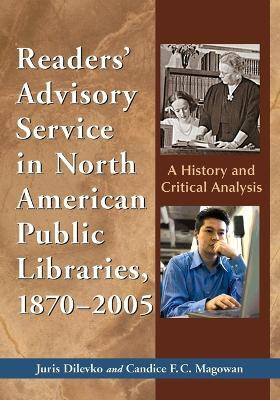Readers' Advisory Service in North American Public Libraries, 1870-2005(English, Paperback, Dilevko Juris)
Quick Overview
Product Price Comparison
Beginning in the early 1980s, readers' advisory services were a widely discussed topic in North American public libraries. By 2005, almost every public library in the United States and Canada offered some form of readers' advisory service. The services offered have changed significantly, in ways perhaps disadvantageous to adult North American library patrons. This book provides a critical history of readers' advisory philosophy and offers a new perspective on the evolution of the service. The book analyzes the debate that shaped readers' advisory and discusses how the service has assumed its present form. The study follows readers' advisory through its three prominent stages of development, beginning with the period 1870 to 1916, when the service was still a subject of much crucial debate about its meaning and purpose. During the second phase (1917 to 1962), readers' advisory systematically committed itself to meaningful adult education through serious and purposeful reading. The book argues, however, that during the most recent phase of readers' advisory, from 1963 until the present, contemporary public libraries have turned their backs on the rich heritage of readers' advisory services by valorizing the reading of entertainment-oriented and commodified genre titles and bestsellers. Historical analysis, case studies and statistical charts augment the book's central argument.


